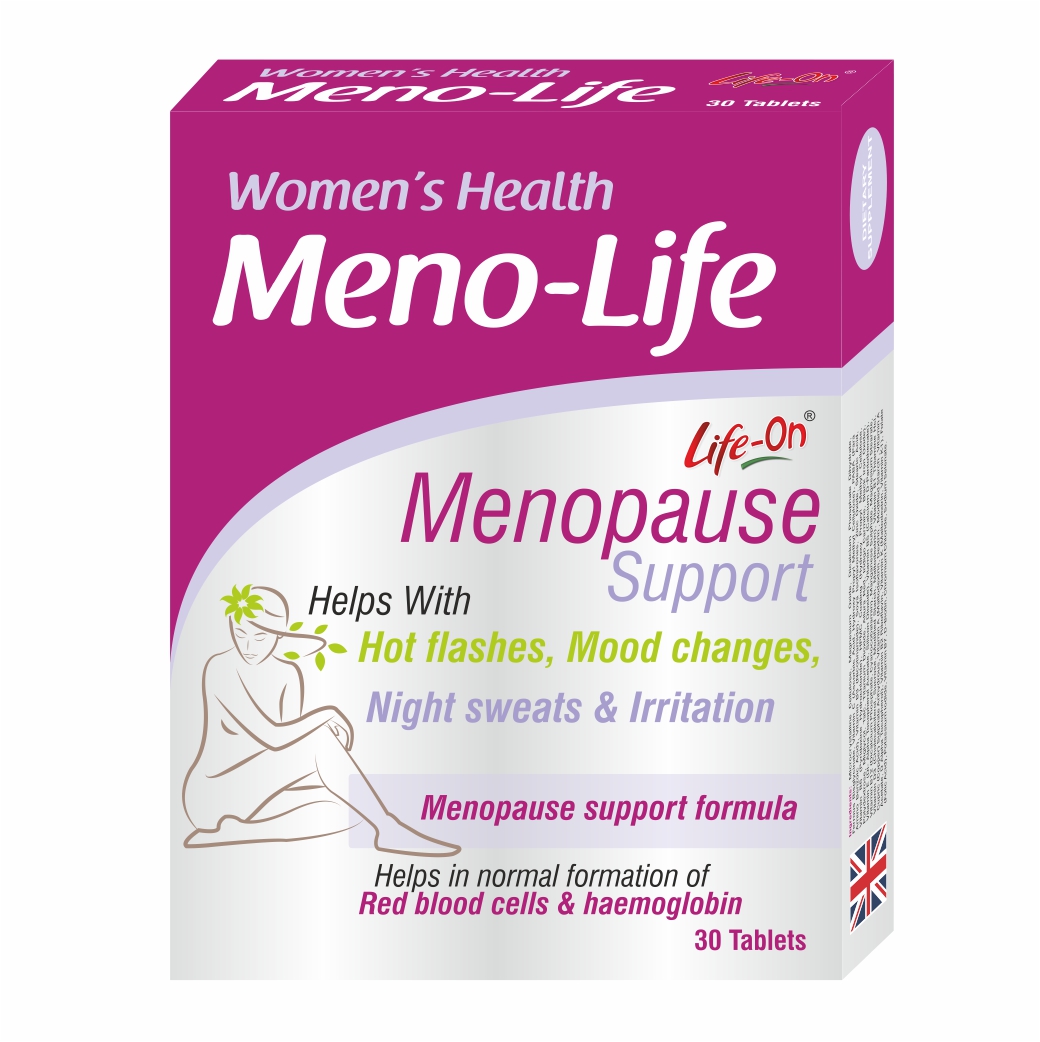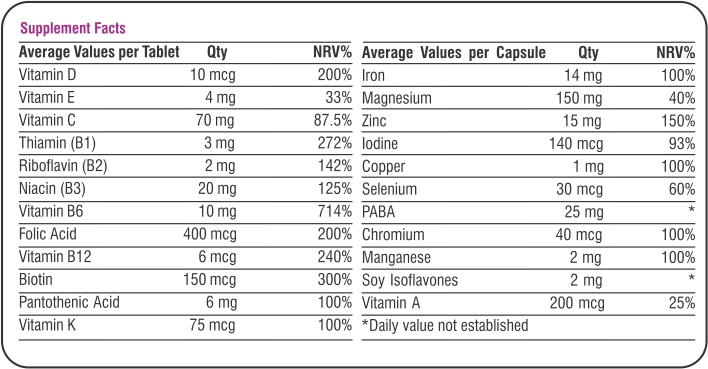

Product Information
Menopause is a term that refers to the end of menstruation, the result of the natural decline in the hormones (estrogen,progesterone and others) produced in the ovaries. After years of preparing and releasing eggs, the ovaries eventually reach a point where they end their monthly routine. As hormone levels decrease, a number of symptoms may emerge, although their presentation and severity varies greatly from woman to woman.
Menopause is strictly defined as 1 year without menses. The ovaries progressively fail to produce estrogen. This failure often begins in the late30's and most women experience near complete loss of production of estrogen by their mid-50s. The transition from normal ovarian function to ovarian failure is described as the menopausal transition.
Women may be asymptomatic, estrogen deficiency is associated with hot flashes, sweating, insomnia and vaginal dryness and discomfort in up to 85% of menopausal women (1). Hot flashes (also known as hot flushes) are a form of flushing due to reduced levels of estradiol or by changing hormone levels (2).
About half to two-thirds of women will have hot flashes (also called “hot flushes”) and sweats during menopause. These are the most common symptoms. If you have them at night, they can disturb your sleep. Hot flashes last about three minutes on average.
As women get older, they develop symptoms like risk of bone fracture increases. Many women also gain a bit of weight around the time of menopause and also develop symptoms of mood swings, sexual problems, a weak bladder or back ache(3) .
Life On Meno-Life has the perfect composition of vitamins, minerals, Isoflavones which together provides the complete relief to the symptoms occurred in menopause stage, Isoflavones are commonly found in legumes such as soy they implicated in relieving menopausal symptoms and are also known as phytoestrogens. Consumption of Isoflavones in food supplements associated in lowering of postmenopausal cancer (2). Vitamins and minerals helps in blood formation, maintenance of immune system, production of hormones and maintenance of strong bones.
Soy Isoflavones are used in relieving menopausal symptoms and contributes in lowering of postmenopausal cancer (2).
Biotin contributes to the maintenance of normal mucous membranes (4).
Chromium contributes to the maintenance of normal blood glucose levels (4).
Copper, folate, Vitamin A, Zinc, Vitamin D, Selenium, Iron, contributes to the functioning of the immune system (4).
Iodine, Selenium contributes to the production of thyroid hormones and thyroid function (4).
Pantothenic acid contributes to mental performance (4).
Riboflavin, Iron, Vitamin B12, Vitamin B6 contributes to the maintenance of red blood cells and red blood cell formation (4).
Vitamin B6 contributes to the regulation of hormonal activity (4).
Vitamin contributes to maintain the function of the immune. The claim may be used only for food which provides a daily intake of 200 mg Vitamin C. Vitamin C increases Iron absorption (4).
Calcium and Vitamin D help to reduce the loss of bone mineral in post-menopausal women. Low bone mineral density is a risk factor for osteoporotic bone fractures. The claim may be used only for food supplements which provide at least 400 mg of calcium and 15 μg of Vitamin D (4).
Vitamin K contributes to the maintenance of bones and contributes to blood clotting (4).
References
1.American Association of Clinical Endocrinologists Medical Guidelines for Clinical Practice for diagnosis and treatment of menopause, endocrine practice vol 17(suppl 6)november /december 2011.
2.en.wikipedia.org/wiki/Hot_flash
3.Menopause: Overview, www.ncbi.nlm.nih.gov/pubmedhealth/ PMH0072495/ August 29, 2013;
4.European Union Register on Nutritional and Health Claims.
